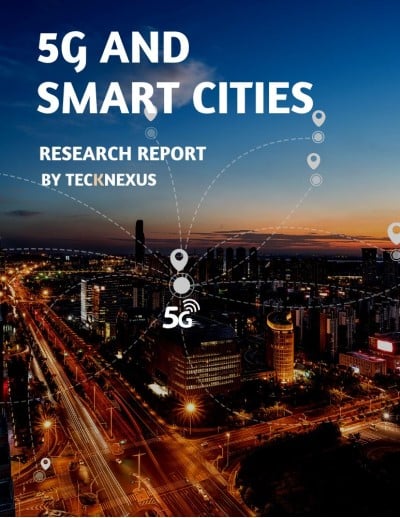The concept of smart cities has been gaining traction in recent years, with the increasing need for efficient and sustainable urban development. Smart cities leverage advanced technologies to improve urban life, including transportation, energy, public safety, and environmental sustainability.
One of the key enablers of smart cities is 5G technology, which promises faster data speeds, lower latency, and greater network capacity than its predecessors. Deploying private/public 5G networks in smart cities can help connect various devices and sensors, providing real-time data and insights to enable better decision-making and resource management. 5G, combined with other technologies such as the Internet of Things (IoT), Artificial Intelligence (AI), and Augmented Reality (AR), are important for smart city development. For example, 5G-enabled augmented reality (AR) can provide real-time information about traffic congestion, weather conditions, and public transportation schedules. This can help city residents make better decisions about how to get around town.
This research report will explore the role of private/public 5G networks in smart cities, the technologies and use cases enabling their deployment, and the benefits and challenges of implementing such networks. The report will also provide global and regional insights on 5G and smart cities and recommendations for stakeholders looking to leverage this technology for urban development.
Key questions answered in this report:
Below are some key questions covered in this research report on public/private networks for smart cities:
- What are the key drivers for adopting private/public 5G networks in smart cities?
- What are the major challenges and barriers to deploying private/public 5G networks in smart cities?
- How can private/public 5G networks be used to address the specific pain points of smart cities?
- What are the key benefits of private/public 5G networks in smart cities, and how can they improve the quality of life for citizens?
- What are the most promising use cases for private/public 5G networks in smart cities?
- Who are the key ecosystem players and partners in deploying private/public 5G networks in smart cities?
- What are the global and regional trends and insights on private/public 5G networks in smart cities?
- What are the future trends and opportunities for private/public 5G networks in smart cities?
Target Audience:
Smart City Officials | Operators/Communication Service Providers | Technology Vendors | System Integrators
Geographics covered:
Americas, Europe, Asia, Oceania, Middle-East, and Africa.
Table of Content:
I. Introduction
-
- Background on smart cities and 5G technology
- Role of private/public 5G networks in smart cities
- Purpose and scope of the research report
II. Technologies enabling digital transformation in smart cities
-
- IoT and connected devices
- Artificial intelligence and machine learning
- Cloud computing
- Big data analytics
- Connectivity
III. Benefits of private/public 5G networks for smart cities
IV: Challenges of private/public 5G networks for smart cities
V. Use cases for private/public 5G networks in smart cities
-
- Smart Transportation
- Energy and utility management
- Public safety and emergency services
- Environmental monitoring and sustainability
- Citizen engagement and participation
VI. Ecosystem players and partnerships
-
- Telecom operators
- Equipment vendors
- Application developers
- Government and regulatory bodies
- Industry associations and consortia
VII. Global and regional insights on private/public 5G networks for smart cities
-
- Regulatory considerations and best practices
- Use case examples and case studies
VIII. Conclusion and recommendations
-
- Key takeaways and insights from the research report


